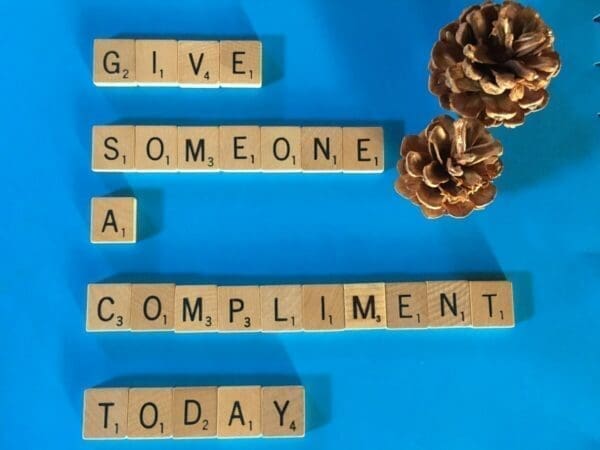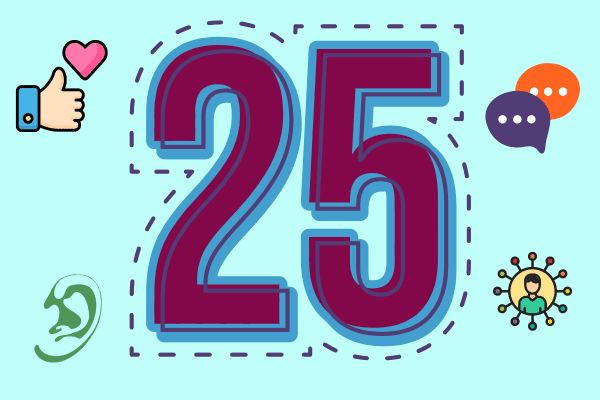What is Likeable?
Right off the bat, let’s deal with the spelling – likability vs likeability. That pesky ‘e’. It turns out that the British include the ‘e’ and the Americans don’t. Ok, so the ‘e’ remains because I’m a Brit. Next, one of the toughest questions of all – are you a likeable person?
We all want to answer with a resounding ‘Yes!’. And then our minds take a look at ourselves and think about the friends we have, the people we’ve made laugh, and that time we helped a puppy across the road. So, we all consider ourselves to be a likeable person. Yet, we also know that friend or person we met that has that something. That thing. The ability to be liked by everyone. The likeable quality.
Meeting the Man with the Likeable Quality
My son jack put his motorbike up for sale recently. Jack then exchanged messages with a guy called Phillip, and as it was Jack’s first sale of a vehicle, he asked me to join him to ensure that all was good. Phillip arrived at our house. From the moment I met him, he oozed likeability. As someone who is fascinated by soft skills anyway, this really intrigued me. I like this man from the instant I met him. So did Jack.
So, what was it that gave him the likeable quality? Desperately, I try to identify what were a million small things that he said or did that can be listed. Maybe even bottled and sold?!
Phillip was unassuming. A lecturer at a university. He dressed normally and looked like a 45-year-old man. Nothing special. Nothing untoward. But that’s not it. He smiled. That was a great start. Not all of us do that when we meet people. Sometimes we’re on the phone and loudly communicating ‘you are not important’. He was not. His body language was welcoming. A big smile, his hand out, but not forcefully, just ‘friendly’.

Enter, Phillip
He said, ‘My name is Phillip. Pleased to meet you. I’m sorry, I don’t know your name’. He invited me to share my name and then when I said it, he leaned a little towards me to show that it was important to him that he got it right, and then he repeated it back to me – ‘Pleased to meet you Darren’. At this point, you’d think he had learned this stuff. He hadn’t. It was as natural to him as walking.
As we do what men do when we sell vehicles, we all stand around the vehicle looking at it, half pretending we know what we’re talking about, avoiding the negotiation for as long as possible. He was asking questions about the bike. Then he stopped. He looked down at my read funky trainers, and without skipping a beat he said, ‘Great trainers’. And went back to asking questions about the bike. This man was intriguing to me. Philip – can I bottle that thing you have?! I wanted to ask.

What did he actually do? Give me a list. I need a list. That’s the trouble with soft skills – people stuff – a lot of is intangible, born with it, natural, and hard to turn from what we feel into what we know. You are a soft skills expert Darren, so try, I hear you say…
An Expert’s List
- In one of those many quotes we see of a famous person and a quote, I saw one recently that showed Richard Branson saying something like, ‘Nothing beats a smile and a handshake to begin a relationship’. Whether he said it or not, it feels like something he would say, and it makes sense. How often do we start a relationship with anything but a friendly handshake and a big smile?
- Philip complimented me. That was unexpected. From one middle-aged man to another, compliments! Odd, strange, but wonderful! He did it simply, without missing a beat and as though it was the most natural thing in the world. Brilliantly simple. We all know that everyone loves compliments, but when we think of a compliment we consider the disingenuous ones, like ‘Nice hair, love’. A genuine compliment goes miles.
- He asked lots of questions, but not in a Spanish inquisition type, more in a natural ‘I am interested in you and I’d like to know’, type. He hadn’t prepared the questions and yet these open questions were coming across as a genuine curiosity to want to know the person and with an interest in their world. And when he was asked questions about himself, he answered enough to respect the question, yet not too much to show the slightest hint of being self-orientated.
Philip is likeable and he does this naturally. He has what you might call a likeability quotient. He hasn’t learnt it in a book or on a training course. He is who he is. Now, Philip is probably a rubbish negotiator. Well, he was, but there is so much we can learn from him about being likeable and becoming the bets version of ourselves.
Sticky Learning ® is 7 times more effective than 1-day training courses. Plus, you will get a Chain of Evidence proving your Return on Investment. Discover soft skills training that changes behaviours long term.

Research into Likeability – The Likeable Meaning
The University of California published a study in 2016 which the media termed the study of likeability. The study asked the subjects to rank 500 adjectives based on their significance to likeability. 13 adjectives were grouped as having a significance, and an additionally 3 were ranked highest. So, you might say that in the world of likeability there are gold medal winners and silver meal winners (The Paralympics is on as I write this).
The 3 Gold Medalists are:
- Sincere
- Transparent
- Understanding of others

The 13 Silver Medalists:
- Ask questions
- Put away their phones
- Are genuine
- Don’t pass judgement
- Don’t seek attention
- Are consistent
- Use positive body language
- Leave a strong first impression
- Greet people by name
- Smile
- Know when to open up
- Know who to touch
- Balance passion and fun
‘I Already Do That’
As we read that list most of us are overwhelmed and then we try to identify some we already do. ‘I do that’, and others we’d like to do, for example ‘they put away their phones’. As a reminder to ourselves that we should although we’ve already convinced ourselves that we’d never be that rude.
So, we have a great piece of research about how to be more likeable, but how does that help us to be more likeable beyond a nod to ‘we must put away our phone’. That will hardly improve our likeability significantly. How do we be more Philip?
I have read many articles in my research for this topic and their next step is to explain each of the 16 qualities and give you examples in the vain hope that you might remember something and possibly even remember to do it at the right time. Probably, smile. Aha, I can remember that-ish, though I do that anyway. Moving on…
Let Me Appeal to You in 3 Ways to See if We Can Together Learn and then Be More Likeable – How can I Increase My Likeability?
#1 Be Envious. Be Very Envious
At school there were popular kids. The kids that looked cool, and everyone want to be in their gang. Adulthood is a little similar. We yearn to be wanted, to be liked, to respected. At work you meet those people that everyone likes. They are charismatic, funny, and easy to be with, and they seem to be promoted quicker, earn more, and are always selected for the best opportunities.
Do likeable people earn more? Yes, they do.
Watch what these people do. NLP (Neuro linguistics programming) states that we can model behaviours seen in others, on ourselves. In simple terms, monkey see, monkey do. Identify those likeable people and identify three things they do. Then copy those behaviours.
#2 My Good Client Andrew
Andrew is a great guy and we were having a conversation at work the other day. He is a client and we’ve only known each other for a few years, and he is very likeable. That’s not the amazing part, the amazing part is that I see him trying to be even more likeable. Not in a process, ‘I must be likeable’ (Use a dalek’s voice here), but in a being genuinely interested in people, way.
Back to our conversation the other day. I was asking him about a potential project we could work on and after I had finished my pitch he said, ‘I am trying to consciously be more transparent, so I’ll share what I can’. He went onto describe why we could not work on this project together by sharing some challenges elsewhere in his business.

So, another way we can tackle this ‘be more likeable’ challenge is to share that we are trying to be more transparent, consistent, sincere, and actually articulate that to others. It provides a great line in the sand for both them and you to remind yourself to be more of that, and it shares a wonderful humility that this is important.
#3 Dale Carnegie Wrote How to Win Friends and Influence People
An excellent book and who would disagree at 30 million copies and over 85 years since it was first published. I read this book many years ago and it is as useful today as it was in 1936. The main part I took from this book was about making that person believe that at that point, they are your whole world.
Now, with the onslaught of technology distracting us constantly, it is ever more important to resist. We shouldn’t need to tell people to get off their phones when they are speaking to someone else, not reply to a text or gradually peak at their emails. That’s just not being rude. Making someone your whole world is a whole another level. How do we achieve it?
The more I research this amazing topic of likeability the more I keep coming back to wanting to make a platinum medal. Yes, we have our golds. Who are sincere, transparent, and they have a capacity to understand others, but it is the last one that is the real winner. They have a capacity to understand others.
This is a key pillar of emotional intelligence. Let’s explore this in our next chapter. For now, the take-away is to make people feel like they are your whole world when you are with them.
Platinum Medal – They have a Capacity to Understand Others
Let’s take this from another perspective. A person who makes you feel not important. Maybe been small, that your opinions don’t count, and a single text from a utility company is worthy more than you. Their key attributes are:
- They don’t listen.
- Their body language is focused elsewhere.
- They ask no questions.
- When they greeted you, they forgot your name.
- Their handshake was limp.
- There was a level of incongruence between what they said and how they said it. For example, ‘Oh, that’s really interesting’, in a tone that suggested you were reading from the Yellow pages.
- Their phone and they are their entire world.
We all know someone like this. They have the opposite of the likeable quality. They could use many lessons with our friend Phillip. So, we just act the opposite to this? Yes, broadly. but it’s not as simple as that because the capacity to understand others goes beyond just asking questions, it asks much more of us.
How Can We Mere Mortals Adopt the Capacity to Understand Others?
There are 2 pieces we can adopt that will significantly improve our likeability, which is all about having a capacity to understand others. I call it the ‘Likeable Coin’. Imagine a coin and on one side is questions and the other is listening. No great reveal because these things rarely are and are not tough, but yet if we can do it at a much higher level, a Phillip level, we will significantly improve our likeability.

Coin Side 1 – Great Curious Questions
Asking a genuinely curious question and waiting for the answer. Questions that enable people to open up. Far-reaching, but not invasive, and interested without being too personal. Ted Lasso, the Apple TV series, shares a great scene all about Ted’s wonderful phrase, ‘Be curious. Not judgemental’. These favourites, I’d like to adopt:
- What’s happening in your world right now?
- What’s making you happy in life?
- Everyone is struggling with something, you?
Coin Side 2 – Listening with Intent
Listening to reply, is not the same as listening. You can tell those that really listen versus those that don’t. As you speak the person opens and closes their mouth ever so slightly, as they remind themselves not to speak, yet they are just waiting for you to finish. Don’t. It’s ok to wait until they’ve finished, ponder and then reply. Nodding as they speak, with the occasional ‘um’ ‘er’, and ‘I get that’, helps to show that you care about what is being said.
So, imagine our Likeable Coin being tossed in the air as you meet someone. Spinning from one great curious question to listening with intent, over and over, and over again. Improving your likeability – why?
Because you cared enough to ask and listen but on a higher level than you have before. On a Philip level of curiosity and intent.
In Summarising the Likeable Quality – How do You Get People to Like You?
Use great curious questions and listening with the intent to be more likeable, to make that person your whole world for those moments that you are together. Use your Likeable Coin. The great news is that it doesn’t take much effort, just enough to challenge yourself to operate at a higher level – the best version of you, level. You can do it – go find your first-person, spin that coin, and improve your likeability.




